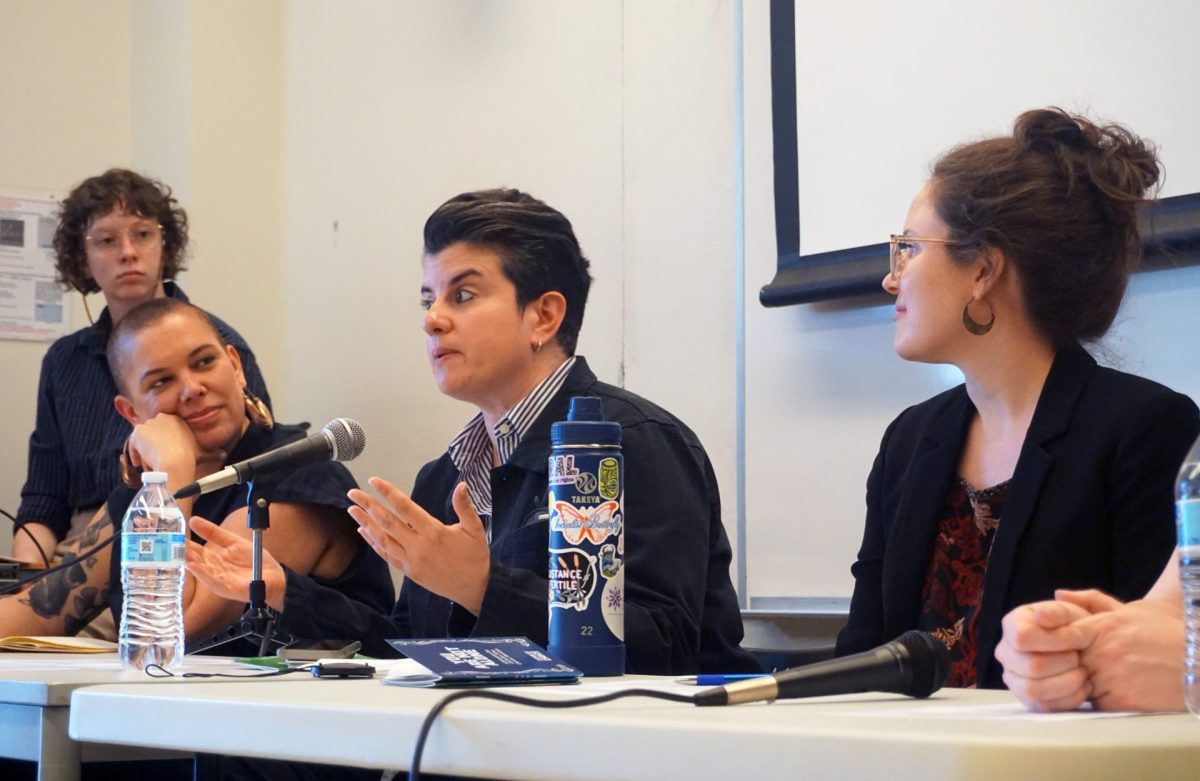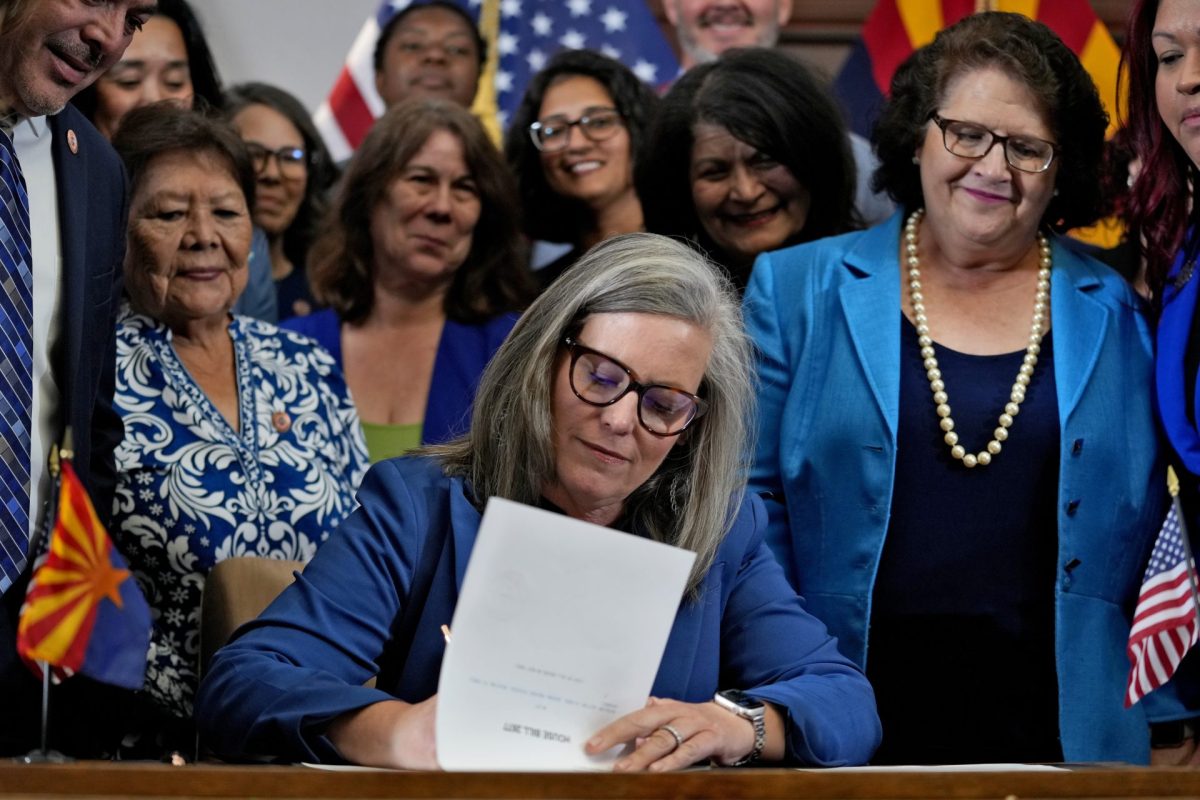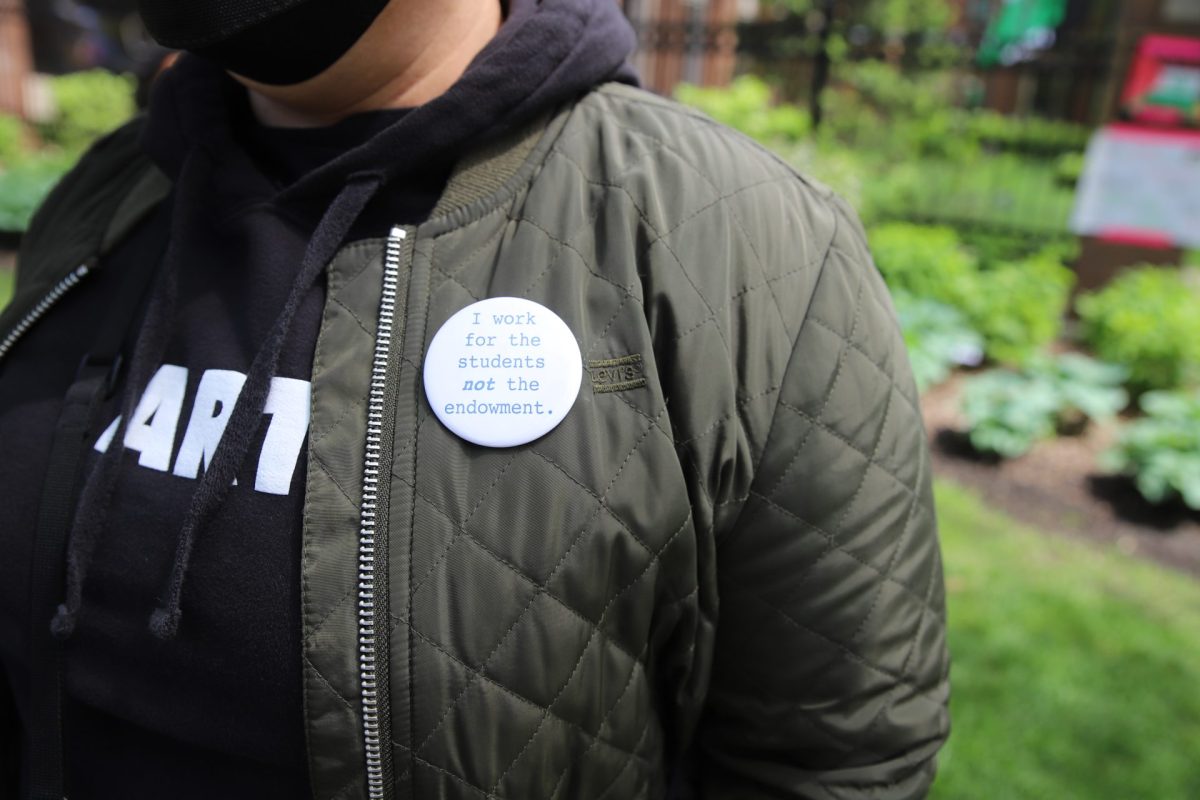To some, it’s taboo. To others, it’s a “buzzkill.” Yet for DePaul students Nicholas Cannella, Mike Stapleton, Cassie Snyder, Rhone Talsma and Dan Weise, talking about sex promotes sexual consent.
Last Wednesday, the five led a panel discussion at DePaul’s College of Law entitled “When Yes Means No and When Yes Means Yes” to kick off DePaul’s Sexual Assault Awareness Month.
According to the Center for Disease Control and Prevention 2010 statistics, more than 12 million people nationwide were victims of sexual violence. In 2012, the CDC reported that one in five women and one in 71 men experience rape at some point in their lives.
Because of the high prevalence of sexual violence in the United States, DePaul law professor and the event’s moderator, Deborah Tuerkheimer, collaborated with the Office of Health Promotion and Wellness (HPW) to support the student panel.
“The idea of moving from a rape culture to a consent culture is very much dependent on whether we talk about consent,” Tuerkehiemer said.
The panel defined consent as “ongoing” from situation to situation. Panelist Dan Weis stated that consent has to be prevalent whether “you’ve been in a long standing relationship or you just met someone.”
Panelist Rhone Talsma argued that when people approach sexual situations, it is better to err on the side of caution:
“If you’re not sure whether or not your partner is consenting, your partner probably isn’t consenting. I think that’s a common victim blaming method like, ‘She didn’t speak up. She didn’t say no. How was I supposed to know?’ Well, you would have known if you would have asked her.”
Panelists Nicholas Cannella and Mike Stapleton work with the new student group, DePaul Men Against Sexual Violence, to educate college age men on sexual violence.
“I try to make [men] understand that it is a humanity issue. This is a respect issue. For a lot of guys, I say, ‘You need to understand what it means to be a man.’ You need to be courageous, and that you can have self-control. Just going out and doing what you want is the biggest sign of immaturity.”
“But remember, women can be perpetrators too,” panelist Cassie Snyder added.
In fact, according to the CDC, men are less likely to report sexual violence than women.
“I feel like rape is very prevalent in our society and needs to be dealt with directly,” DePaul law student Nicholas Peluso, who attended the discussion, said. As a private first class in the Army National Guard, Peluso receives military training to identify and stop sexual assaults.
From a legal standpoint, Tuerkheimer defined the law as “reactive” to sexual violence. To prevent sexual violence, especially on college campuses such as DePaul, HPW suggests to beware of date rape drugs, go out in groups especially at night and when taking taxis, do not share personal information online, and if endangered or drugged, call 911.
Talsma encouraged the nearly 40-person audience to open up discussion with friends and family about sexual violence:
“Even if we can’t dismantle a rape culture right now in this room, we still have to make things better for people.”







